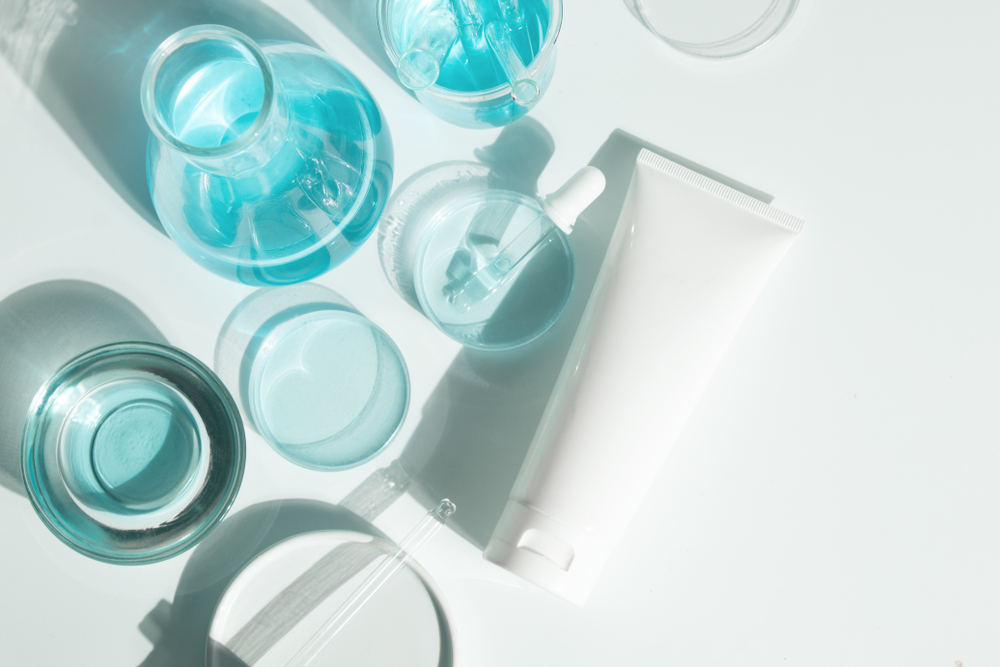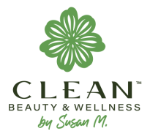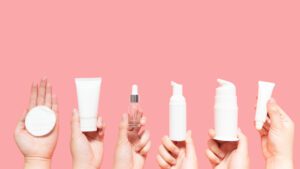CBD Skincare: What the Science Says
The skincare industry is booming, and companies are forever searching for revolutionary beauty products and ingredients. Could cannabidiol (CBD) be the next big thing? As many consumers are shifting their mindsets to seek natural and sustainable products, CBD skincare is creating a stir.
What Is CBD Skincare?
Cannabidiol is the second most prevalent compound in cannabis (i.e. hemp), and researchers primarily explore it for anti-inflammatory properties in skincare. Not to be confused with tetrahydrocannabinol (THC), CBD does not have psychoactive effects.
Cannabidiol, a substance source from hemp, has gained much attention in recent years. In 2018, the Farm Bill was signed into law, removing hemp CBD from the Controlled Substances Act. As a result, hemp-derived CBD products with less than 0.3 percent THC were made federally legal.
Legalization allowed Americans to grow, process, buy and manufacture hemp and hemp-based products. Finally! Hemp for everyone!
Is CBD Skincare Snake Oil?
Marketers tend to bombard consumers with claims and promises that their products reverse wrinkles, make you younger, or cure skin conditions. Unfortunately, in most cases, these claims simply are widely over-sold.
Because of the explosion in interest in CBD skincare, this seems to be happening in our industry as well. We want to clarify that while CBD isn’t snake oil, it’s often marketed that way these days.
CBD oil-infused skincare does not deliver a miracle overnight, but we see the potential for success because we’ve lived it. We encourage everyone to be wary of advertisements that guarantee or over-promise results from CBD — because that is not realistic.
CBD skincare is just getting started, based on evidence from preliminary research. However, with so much investment, more robust research is on the way. Until then, we can only speak to what we’ve experienced and explore the potential of the early studies completed thus far.
The Science of CBD Skincare

There is a lot of interest in CBD, especially topical CBD preparations like creams, face serums, and other topicals. So much so that Allied Market Research predicts that the CBD skincare market is going to hit $3,484 million by 2026.
Yet, despite all the excitement, the research is still playing catch up. Most studies into CBD remain in preliminary phases of development, which means Petri dishes, animal models, or small trial studies.
Here are just a few ideas of where this field of study is currently going:
CBD and Inflammation
In 2010, “Cannabinoids as novel anti-inflammatory drugs” reviewed and discussed the mechanisms of how “cannabinoids are potent anti-inflammatory agents,” an essential aspect of skincare.
This study lays out how CBD interacts with the human endocannabinoid system — a system that regulates many physiological processes. Considering our epidermis contains a concentration of endocannabinoid receptors, the hypothesis is that topical CBD could deliver these known anti-inflammatory qualities to our skin.
CBD and Acne
A study published in 2014 in the Journal of Clinical Investigation found that “CBD behaves as a highly effective sebostatic agent.” Our sebaceous glands produce an oily substance called sebum, which is the root cause of certain types of acne. Based on their in-vivo study results, the authors noted that CBD has “potential as a promising therapeutic agent” with skin conditions such as acne.
CBD and Eczema
Another study published earlier this year in Skin Science from Molecules to Population Health reported that 60 females saw an improvement in their eczema over three months of using CBD products.
CBD and Psoriasis
Finally, a study published in 2007 in The National Library of Medicine found that CBD also proved beneficial for psoriasis through inhibiting keratinocyte proliferation.
Despite the preliminary nature of this research, CBD has a very impressive safety profile. It’s why we trust in the science of CBD skincare, and it’s why we’ve built all our formulations around this incredible compound.
How to Incorporate CBD Skincare Into Your Routine
With many consumers moving toward more sustainable and natural remedies, it’s no wonder that CBD skincare is getting so much attention.
Using a serum in the morning and evening before moisturizing is a great way to begin exploring CBD skincare. Sunshine Serum combines CBD and vitamin C to give you a bright, balanced complexion.
Vitamin C is important to the functioning of the immune system and the maintenance and growth of body tissue.
If signs of aging are more of a priority, a CBD wrinkle cream that works alongside hyaluronic acid to smooth the look of wrinkles and keep the skin moisturized could be the product for you.
It only takes a pea-sized amount of CBD cream and two minutes to dry, so it’s easy to incorporate and will last. Use daily as a makeup primer for a smooth, nourished complexion.
CBD: A Promising Solution in Skincare
With the early evidence, we believe there is a promise for CBD within skincare. It’s a sustainable, natural, and practical ingredient to incorporate into our beauty routine. With so much attention, CBD skincare is at the forefront of many researchers’ agendas.
At Clean Beauty and Wellness, we are placing bets on CBD because we’ve experienced the results ourselves. We’ve seen what it can do, and we want to share what we’ve discovered.


[…] Skincare manufacturers combine CBD and menthol in their pain-relief creams and lotions so the CBD will be absorbed more effectively. Menthol opens skin pores, not because of a skin temperature change but because of membrane interaction, allowing better chemical absorption. […]
[…] Biochemistry is the pioneer for plant stem cell production for the cosmetic and skincare industry. The company conducted initial studies into the anti-aging effect of apple stem […]